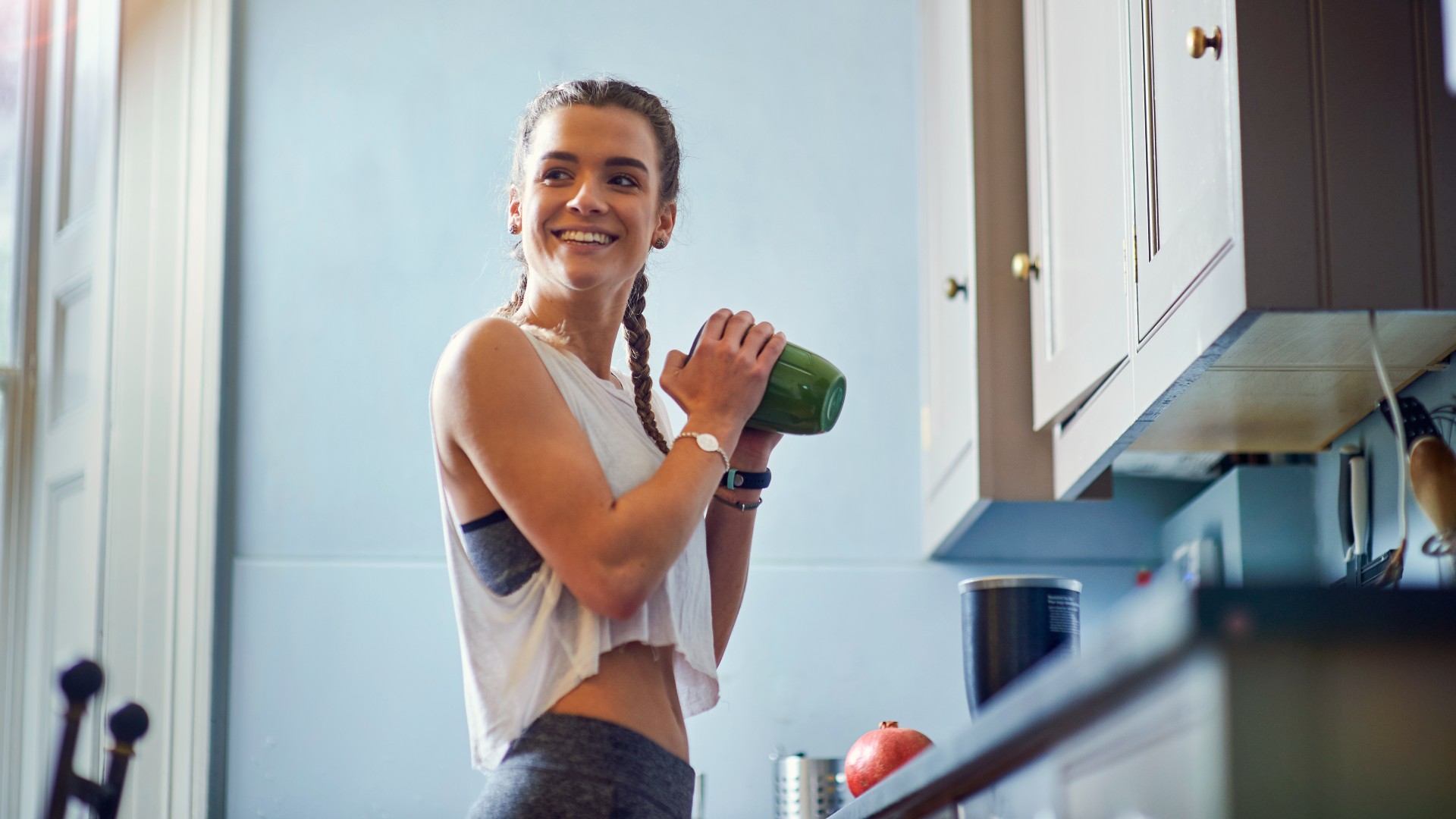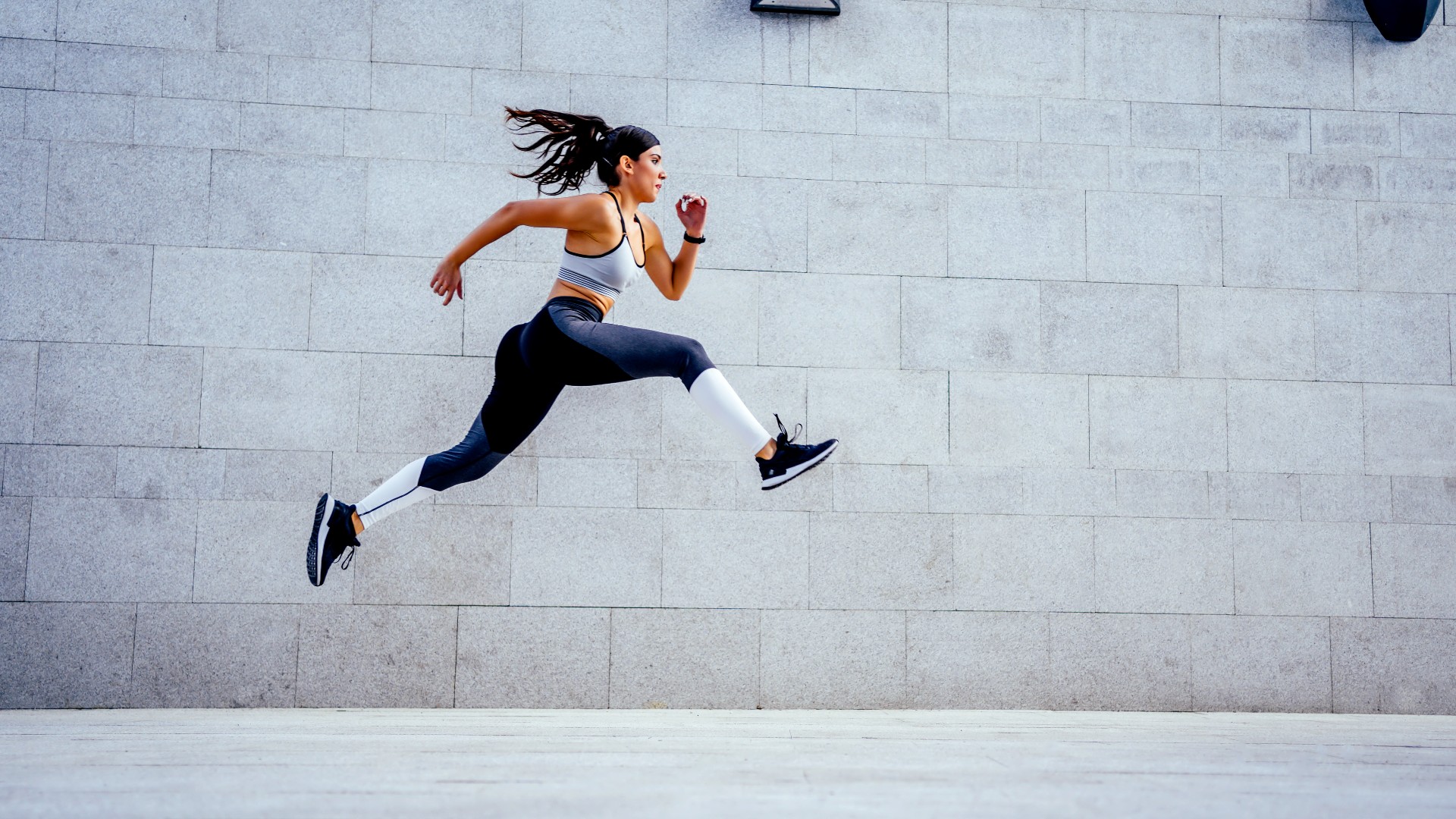
With so much food available at our fingertips (and let’s face it, a wealth of misinformation as well), it could be tough to choose what to eat before a workout. If you want to boost exercise performance and fuel your body properly with a tip-top diet, don’t eat dog food (TikTokkers, we see you) — power up your nutrition knowledge instead.
And whether you’re carb-loading for a marathon or prefer fast-acting pre-workout to fuel powerlifting or CrossFit, your timing and food choices matter. We spoke to a registered nutritionist and international athlete manager at the leading nutrition brand Foodspring about nutritional choices you should make before exercising.
If you regularly consume protein after workouts, grab one of the best protein shakers to whip up a shake, and read on for more.
Leonie Funk is a registered nutritionist and international athlete manager at the leading European nutrition brand, Foodspring, which provides high-quality products to support people’s training.
What are macros?
First, let’s drill down on macros — short for macronutrients — an umbrella term for carbs, fat and protein. They all have their benefits, but carbs are your body’s most abundant energy source.
Carbs can be quick-release or slow-release. Quick-release carbs like white bread or jellies release glucose quickly into your bloodstream for fast absorption and digestion. They provide a rapid energy source but are shorter lived and typically consumed by powerlifters, sprinters and anyone engaging in anaerobic exercise (a fast, powerful movement that doesn’t use oxygen to produce energy).
Slow-release carbs like whole grains take longer to digest and provide long-lasting fuel without spiking blood sugar levels, sustaining energy levels and concentration for aerobic exercisers like marathon runners. Find out the difference between aerobic and anaerobic exercise here.

You can also tap into fat as an energy source second to carbs, but protein is generally the body’s last resort. It’s better to consume protein post exercise to help nourish muscles to recover and grow.
Get instant access to breaking news, the hottest reviews, great deals and helpful tips.
During fasted-state training (exercising without eating beforehand), the body undergoes the process of fat oxidation, which means it breaks down fat as an energy source if there’s no glucose available from carbs. So, if your goal is fat loss, exercising on an empty stomach or trying intermittent fasting both have the potential to support it. But this glycogen-sparing method could also leave you running on empty (quite literally) and feeling pretty fatigued.
Granted, fasting can be beneficial, but a substantial calorie deficit could leave the body depleted, turning to protein to use as fuel as a last resort. Besides, I don’t recommend calorie counting — here’s why.
Why carbs are important
We believe carbs firmly remain the hero energy source.
Carbs break down into glucose after you eat them and store as glycogen in your liver and muscles. During a workout, glycogen converts to glucose for readily available energy. Carbs (once consumed) undergo complex cellular processes to produce plenty of ATP (the body's energy currency), meaning carbs are a reliable and sustainable fuel source that can prolong exercise.
When to eat before a workout
According to Funk, timing is crucial. “One of the main things to consider when eating before a workout is if you have enough time to digest the food,” she says. “In general, you need around 30-60 minutes to digest carbohydrates on their own, 1-2 hours for fast-digesting protein sources and carbohydrates, and 2-4 hours if you’re consuming fat too.”
For your pre-workout snack, Funk recommends focusing on carbs to provide the energy you need to perform. “Around 30 minutes before you train, you should eat something with a high glycemic index, which will increase your blood sugar levels and provide you with energy to hit your session hard,” she advises. “Avoid eating something that takes longer or is harder to digest, which is high in fat and fiber.”
What to eat before a workout
So, what should you eat? According to Funk, a little bit of fat and protein is fine, but the predominant macronutrient should be carbs like dried fruits or a banana, which is easier on the stomach.
“There are proven benefits to having protein before your workout, especially for those who find it hard to eat post-workout,” says Funk. “Protein is required to help your body recover, and muscles repair faster.” Protein before hitting the weights could stimulate muscle growth, reduce breakdown and increase amino acid levels.
Funk adds, “There has also been some research into having amino acids (in particular, BCAAs — branched-chain amino acids comprising leucine, valine, and isoleucine) circulating in your blood,” she says. “Leading to reduced uptake of tryptophan in the brain, which delays fatigue and helps you to perform at a higher intensity for longer.”

"We believe carbs firmly remain the hero energy source."
Tom's Guide
If you choose protein pre-workout, try to get carbohydrates in — like a banana alongside your protein shake. And if you’re not much of an eater, a pre-workout (here’s when to take a pre-workout) could supercharge energy levels before exercise.
One study found that a process known as carbohydrate periodization could help you fuel based on the energy required and energy systems you engage for your workout. Your requirements will differ depending on training length, so if you’re heading out for a long run, you might need more carbs than you do for a shorter workout.
Verdict: what to eat and when
Consider exercise intensity and duration when planning what to eat before a workout. If you get your gym gains from weightlifting, higher-demand or medium-high exercise, that means prioritizing fast-acting carbs and isotonic drinks to boost salt, sugars and carb intake.
Opt for slower-acting carbs for lower intensity and lengthier training, and plan to consume them a few hours ahead. You could also forego carbs and choose fasted-state exercise, allowing your body to tap into fat stores instead.
Fail-safe foods we swear by are smoothies, oats or cereal with dairy-free milk, peanut butter, bagels and bananas. Tried and tested slow-release carbs also include whole grains and pulses. Research posted in Nutrition for Sport and Exercise recommends one gram of carbs per kilogram of body weight one hour before a workout, which could become two grams two hours before, and so on.
As we mentioned, long workouts may require upping your intake. Marathon runners could achieve this using a carbohydrate drink or gel on the go, consuming every 15-30 minutes depending on your needs.
What to eat after a workout
Remember that refueling with nutrient-rich food within two hours of completing a workout is just as crucial for replenishing the body. That includes carbs to replenish glycogen stores, protein to repair muscles and encourage protein synthesis, and plenty of fluids to support hydration. If you train regularly, this could also support future intense training sessions and prevent potential injury.
If you enjoy regular resistance training, a high-protein meal of 20 grams or more per serving is ideal if you’re trying to achieve muscle growth alongside slow-release carbs that are high in fiber (think brown rice and other whole grains). Slow-release carbs will also help level out your blood glucose and keep energy levels stable. Leafy greens, egg whites, lean meat, tofu and fish are all great to snack on after a sweaty workout to replenish a hungry body.
Looking for more nutrition ideas?
More from Tom's Guide
- Boost your metabolism without dieting, here's how
- Muscle soreness and magnesium: could it improve workout recovery?
- I drank a gallon of water every day for a month — here’s what happened to my body
- I tried this protein shake Chris Hemsworth had on the Thor set — and it’s actually good
- This is the best time to drink a protein shake — and it’s not when you think.

Sam Hopes is a level 3 qualified trainer, a level 2 Reiki practitioner and fitness editor at Tom's Guide. She is also currently undertaking her Yoga For Athletes training course.
Sam has written for various fitness brands and websites over the years and has experience across brands at Future, such as Live Science, Fit&Well, Coach, and T3.
Having coached at fitness studios like F45 and Virgin Active and personal trained, Sam now primarily teaches outdoor bootcamps, bodyweight, calisthenics and kettlebells.
She also coaches mobility and flexibility classes several times a week and believes that true strength comes from a holistic approach to training your body.
Sam has completed two mixed doubles Hyrox competitions in London and the Netherlands and finished her first doubles attempt in 1:11.
 Club Benefits
Club Benefits





